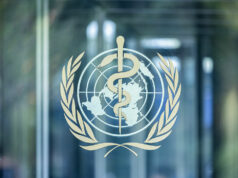
Nutrition, cancer benefits, and mobile clinics nationwide were some of the healthcare priorities highlighted by President Ferdinand R. Marcos, Jr. in his third State of the Nation Address (SONA).
Mr. Marcos also mentioned the following plans:
- Primary healthcare facilities in every province
- Mobile clinics in every province
- PhilHealth chemotherapy benefits for cancers of the lung, liver, ovary, and prostate before the end of 2024
- The rolling out of the Walang Gutom 2027 program to 300,000 food-poor households by the end of 2024
- The improvement of the School-Based Feeding Program
- The proposal of a new grant under the Pantawid Pamilyang Pilipino Program (4Ps) to support the nutrition needs of its pregnant beneficiaries
“As part of our recalibrated health approach towards prevention and healthy habits, we are prioritizing vaccinations, nutrition, mental well-being, and active and healthy lifestyles,” the president said.
The 4Ps grant being proposed will ensure the health and nutrition of children among the poorest of the poor who are between zero to two years old, he said.
“Sa pamamagitan nito, ang isang buntis o ang isang ina na benepisyaryo ng 4Ps ay mabibigyan ng karagdagang tulong-pinansyal na laan para sa kanya at kanyang anak [With the grant, pregnant women and mothers who are 4Ps beneficiaries will be given additional financial assistance for them and their children],” he told the audience at the July 22 SONA.
“Ang tulong na ito ay upang matiyak na siya at ang sanggol na kanyang sina-pupunan, o batang anak, ay ma-aasikaso ng doktor, maba-bakunahan, at mabibigyan ng sapat na nutrisyon [This ensures that the woman and her child will be given medical assistance, vaccination, and adequate nutrition].”
Multifactorial issue
In a statement sent to BusinessWorld on July 23, the Philippine Association of Nutrition (PAN) said it was “delighted to note the inclusion of Nutrition in the President’s 2024 SONA, and particularly so that this is the second consecutive year that this has happened.”
“We cannot recall when nutrition was so prominently positioned in a SONA in the past,” said Dr. Cecilia Cristina S. Acuin, former president and chair of PAN’s committee on external relations.
She said, however, that the association would have liked to hear how the national government intends to assist local government units (LGUs) in remote areas.
“In far-flung LGUs, professional capacity for nutrition is practically nonexistent, supervisory support is hardly felt, and programs barely implemented,” Ms. Acuin said.
Equally important, she added, are nutrition-sensitive interventions such as safe drinking water, as well as an “enabling environment to ensure that systems are strengthened.”
“We were also waiting to hear what those of us in the private sector could contribute towards our country’s nutrition goals and aspirations,” she said.
The stunting of Filipino children is an urgent and multifactorial problem that requires a multi-agency system to solve, according to Dr. Jaime Galvez Tan, a former health secretary and the chairman of Health Futures Foundation, Inc., a healthcare non-profit.
“I would like to see that, in the next nutrition survey in 2025, we’d have a dent on the stunting of our children,” he told BusinessWorld in a July 22 phone call.
On April 12, 2023, the Management Association of the Philippines (MAP) launched a campaign against malnutrition and child stunting, recognizing the threat it poses to social productivity.
The campaign represents “a shift from a transactional to a transformational partnership with the government,” said then-MAP President Benedicta Du-Baladad.
“We at MAP hope to expand our role beyond fund generation and philanthropy to a shared responsibility in addressing malnutrition in the country, participating in the programming and governance of nutrition strategies and interventions,” she said in a press statement.
Healthcare accomplishments
Mr. Marcos also listed the following as the accomplishments of his administration thus far for the healthcare sector:
- The University of the Philippines-Philippine General Hospital’s Cancer Center, the first public-private partnership initiative to be approved by the Marcos, Jr. administration
- The Department of Health (DoH)’s Philippine Cancer Center, which broke ground last March
- The opening of over 20 new Bagong Urgent Care and Ambulatory Service Centers nationwide
- The creation of Super Health Centers, in cooperation with LGUs
- More generic medicines available – 53 from the previous 21 – under the Philippine Health Insurance Corporation (PhilHealth), including those for hypertension, nerve pain, and epileptic seizures
- The increase of PhilHealth benefits for those with illnesses such as ischemic stroke (P76,000 from the previous P28,000) and high-risk pneumonia (P90,100 from the previous P32,000)
- The P100,000 to P1,400,000 increase of PhilHealth benefits for those with breast cancer
- The improvement of medical and allied health programs, including local scholarships and seed funds for public medical schools
- The DoH’s comprehensive mental health plan
- PhilHealth’s mental health benefit package for all members
- The continued implementation of the Philippine Plan of Action for Nutrition
- The revival of the annual Palarong Pambansa, which was halted during the pandemic
- The Department of Science and Technology’s continuous development of nutritious food and drinks, which can be integrated into the government’s feeding program
“These will be a godsend to the more than four hundred thousand Filipinos who are afflicted with this deadly disease,” Mr. Marcos said of the cancer centers.
It was good that the SONA dwelt on primary healthcare, according to Dr. Gerardo D. Legaspi, the director of the University of the Philippines-Philippine General Hospital.
“Studies show that longevity is due to a good primary healthcare system,” he told BusinessWorld in a July 23 interview.
“If you really want to improve healthcare, [the answer is] in primary healthcare,” he said. – Patricia B. Mirasol



